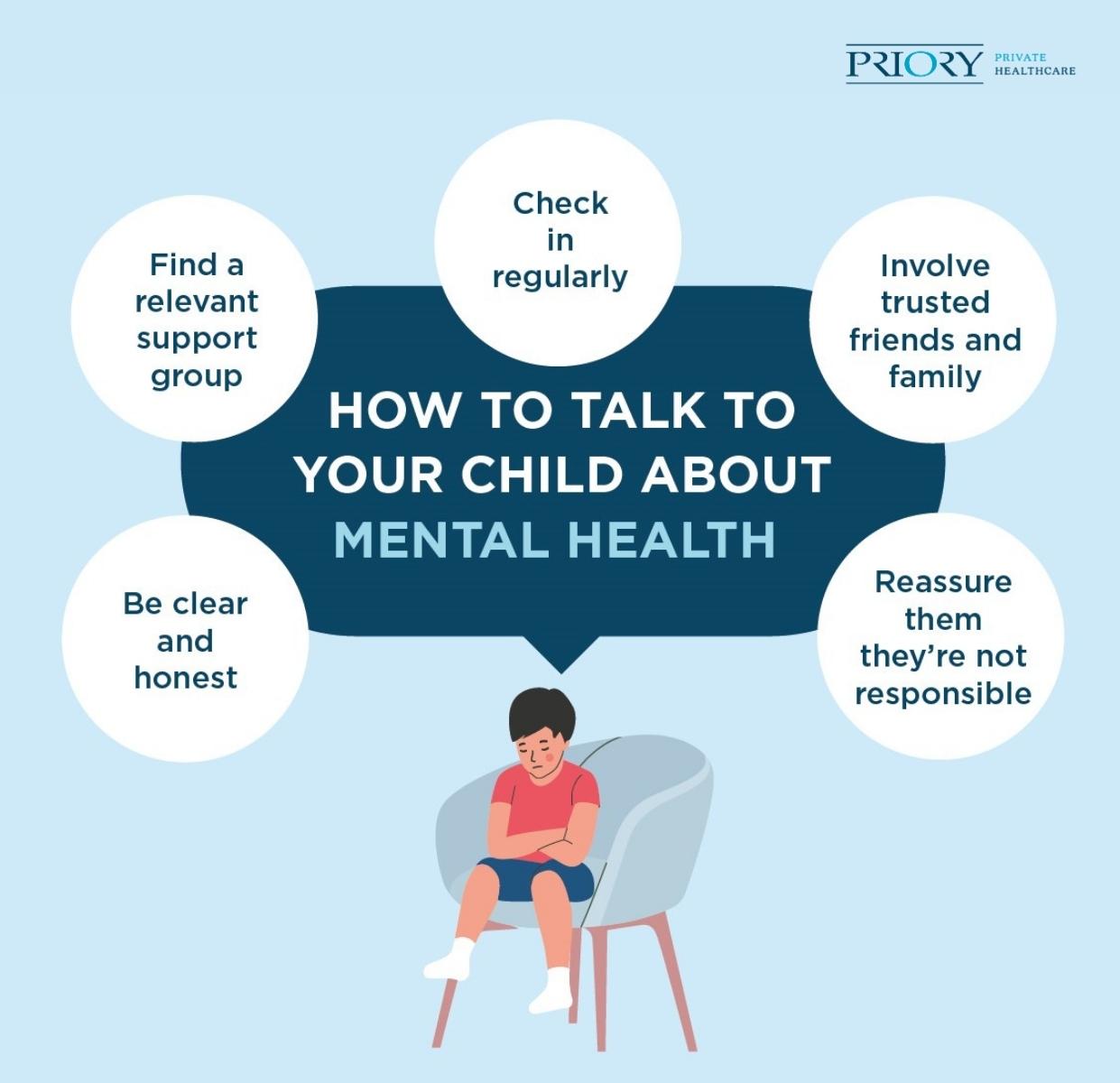Parental mental health: how parenting can affect your mental health
Parenting is a huge challenge, and it can be even harder if you’re struggling with your mental health.
Parenting is a huge challenge, and it can be even harder if you’re struggling with your mental health.



If you’re balancing attempts to overcome a mental health condition while parenting, or find that parenting is putting strain on your mental health, it’s important to understand that there’s no shame in admitting you need help and support.
In this piece, we’ll outline the ways you can look after your mental health as a parent, and explore how you might discuss the topic with your children.
Parenting with a mental health problem can bring additional challenges that, in turn, could prevent you from improving your wellbeing. Common symptoms of depression and other mental health issues include low energy levels, meaning you might find it hard to carry out daily parenting tasks or generally care for your children.
In turn, this can lead to feelings of guilt as you think your parenting isn’t up to standard. These feelings can be exacerbated if you experience stigma or judgement from fellow parents or people you know.
What’s important to recognise is that your feelings and emotions are completely valid, and there's no shame in admitting you need extra help and support as you manage your mental wellbeing.
The phrase “help yourself in order to help others” is well known for a reason; it’s much more difficult to care for your children the way you want to if you don’t also care for yourself. The remainder of this article will offer you advice on how you can look after yourself as a parent and build a healthy relationship with your child on the topic of mental health.
Join our expert panel in Perspectives, where we discuss the solutions and causes of the ongoing crisis in young people's mental health. This episode features insight from clinicians and leaders in the charity sector.
Creating a network of trusted friends and family members around you can help to make things easier when you’re feeling low.
Whether this includes them looking after your children for a couple of hours to help you secure some ‘me time’, or just someone to open up to about your mental health, it’s vital you lean on the support of loved ones around you.
Big changes cause stress and anxiety, so bringing in some similarities to each day can help us feel grounded and less chaotic. Keep things like meal times and bedtimes consistent and, if you can, prepare things like packed lunches the night before.
Every week, be sure to pinpoint a couple of hours or so to engage in some mental health self-care, helping you to relax and reduce anxiety. See what works for you, but here are a few suggestions:
Excessive social media use can impact on mental health negatively if you don’t take some steps to limit this. It's also important to think about how much screen time you're exposed to, due to the impact this can have on sleep, which we know also affects mental health. This is true for both you and your children.
Parenting can become even more stressful under the microscope of social media. Remember that social media isn’t real life. Posts you see from other parents or parenting influencers might make you feel inferior – but it never tells the full story.
Switching off now and then helps to limit our exposure to the downside of social media. Consider a window each week where you put your phone in a drawer.
If your mental health issues are persisting, it’s important that you take the next step and get some mental health support. A good place to start is with your GP, who can offer a trusted voice and advice on what to do next.
Alternatively, you can reach out to a private provider of mental health support like Priory. We provide the best in mental health treatment across a network of UK hospital sites and wellbeing centres. Use the information below to get in touch and find out more about how we could help you.
For many children, a parent's mental health issues won't have an impact on them. However, some children may be affected – especially if their parent isn’t getting enough support or isn’t on a pathway to long-term wellbeing. Having a parent who's struggling with their mental health may result in the child:
Again, it’s important to stress that feelings of guilt or shame about these issues is normal, but managing your mental health and parenting your child in a caring and loving way is absolutely possible.

It’s natural to want to hide something like mental health struggles from children in the hopes of protecting them – but being open and honest can help to reduce their anxiety and destigmatise the topic in their minds. Here are some things to consider when talking to your children about your mental health struggles:
